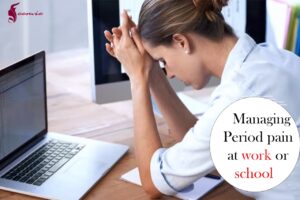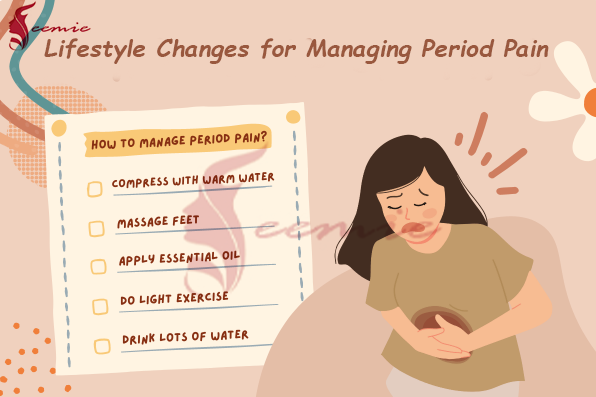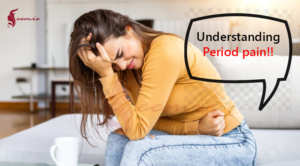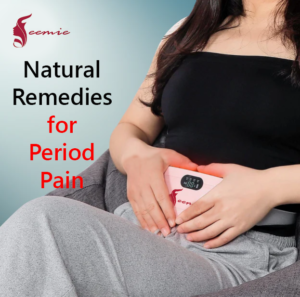
- Home
- Blog
- Harnessing Lifestyle Changes to Alleviate Period Pain: A Holistic Approach to Menstrual Comfort
Managing Period Pain at Work or School
Introduction:
1. Diet and Nutrition:
The foods we eat can have a significant impact on inflammation, hormone levels, and overall health, all of which can influence period pain. To help manage menstrual cramps, consider incorporating the following dietary changes:
– Increase your intake of anti-inflammatory foods such as fruits, vegetables, whole grains, and fatty fish rich in omega-3 fatty acids.
– Limit consumption of processed foods, refined sugars, caffeine, and alcohol, which can exacerbate inflammation and contribute to bloating and discomfort.
– Stay hydrated by drinking plenty of water and herbal teas to help reduce water retention and ease cramping.
2. Exercise and Physical Activity:
3. Sleep Hygiene:
Poor sleep quality can worsen menstrual symptoms and amplify pain perception. Prioritize good sleep hygiene practices to support restorative sleep during your menstrual cycle:
– Maintain a consistent sleep schedule by going to bed and waking up at the same time each day, even on weekends.
– Create a relaxing bedtime routine to signal to your body that it’s time to wind down, such as taking a warm bath, practicing relaxation techniques, or reading a book.
– Create a comfortable sleep environment that is cool, dark, and quiet, and invest in a supportive mattress and pillows to promote optimal sleep posture.
4. Stress Management:
Chronic stress can exacerbate menstrual symptoms and contribute to heightened pain perception. Incorporate stress management techniques into your daily routine to promote relaxation and resilience:
– Practice mindfulness meditation, deep breathing exercises, or progressive muscle relaxation to reduce stress levels and promote a sense of calm.
– Engage in activities that bring you joy and help you unwind, such as spending time outdoors, listening to music, or practicing hobbies.
– Prioritize self-care and set boundaries to avoid overcommitting yourself during your menstrual cycle.
Conclusion
By making mindful lifestyle changes, you can empower yourself to better manage period pain and enhance your overall well-being during menstruation. Experiment with different strategies to find what works best for you, and remember that small changes can yield significant improvements over time. By nurturing your body through healthy diet, regular exercise, restful sleep, and effective stress management, you can experience greater comfort and resilience during your menstrual cycle.



